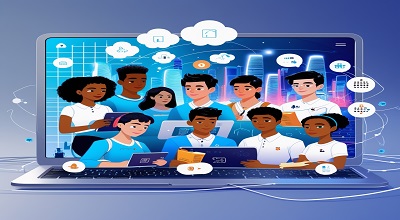Adaptive learning platform
Adaptive learning platform: An adaptive learning platform is an educational technology that personalizes learning experiences by adjusting content, pacing, and assessments to meet the unique needs of each learner. By leveraging algorithms and data analytics, these platforms continuously analyze a learner’s performance and adapt instructional materials accordingly, enhancing engagement and improving learning outcomes.
Key Features of Adaptive Learning Platforms
- Personalized Learning Paths: Tailor educational content to individual learner’s strengths, weaknesses, and preferences.
- Real-Time Feedback: Provide immediate insights into performance, enabling timely interventions.
- Scalability: Accommodate large numbers of learners while delivering individualized experiences.
- Data-Driven Insights: Utilize analytics to inform instructional strategies and content development.
Examples of adaptive Learning Platforms
- Knewton: Offers adaptive learning technology that personalizes educational content for students, enhancing their learning experiences. Wikipedia
- Squirrel AI: Provides AI-powered adaptive education solutions, tailoring lesson plans to individual student needs. Wikipedia
- Kidaptive: Develops an adaptive learning platform that personalizes educational content for early learners. Wikipedia
Benefits of Adaptive Learning Platforms
- Enhanced Engagement: Personalized content keeps learners motivated and invested in their education.
- Improved Outcomes: Customization leads to better comprehension and retention of material.
- Efficient Learning: Focuses on areas needing improvement, optimizing study time.
- Accessibility: Supports diverse learning styles and needs, promoting inclusivity.
Challenges and Considerations
- Implementation Costs: Initial setup and training can be resource-intensive.
- Data Privacy: Ensuring the security of learner data is paramount.
- Content Quality: The effectiveness depends on the quality and relevance of the educational material.
Future Trends in Adaptive Learning
- Integration with AI: Advancements in artificial intelligence will further enhance personalization capabilities.
- Increased Adoption in Corporate Training: Businesses are recognizing the value of adaptive learning for employee development.
- Enhanced Analytics: More sophisticated data analysis will provide deeper insights into learner behaviors and needs.
Conclusion
Adaptive learning platforms represent a significant advancement in educational technology, offering personalized and efficient learning experiences. As technology evolves, these platforms are poised to become even more integral to education and training across various sectors.
FAQs:
The future includes deeper integration with AI, broader adoption in various educational and corporate settings, and enhanced analytics for better personalization.
1: What is an adaptive learning platform?
An adaptive learning platform is a technology that personalizes educational content to meet the unique needs of each learner by adjusting the material based on their performance and learning style.
2: How does adaptive learning work?
It uses algorithms and data analytics to assess a learner’s performance in real-time and modifies the content, pace, and difficulty to optimize learning outcomes.
3: What are the benefits of adaptive learning platforms?
Benefits include personalized learning experiences, improved engagement, better retention of information, and efficient use of study time.
4: Can adaptive learning be used in corporate training?
Yes, many businesses implement adaptive learning platforms to provide personalized training experiences for employees, enhancing skill development and performance.
5: What are some examples of adaptive learning platforms?
Examples include Knewton, Squirrel AI, and Kidaptive, each offering unique features tailored to different learning needs.
6: Are there any challenges associated with adaptive learning platforms?
Challenges include implementation costs, ensuring data privacy, and maintaining high-quality, relevant content.
